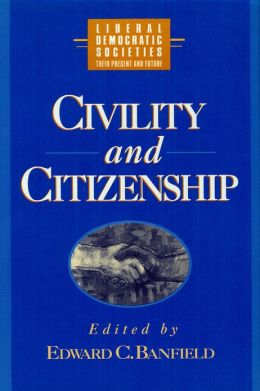New York: Paragon House, 1992.
How do civility and citizenship, aspects of the individual’s attachment to a liberal democratic society, affect the nature and future of that society? This book reminds us of the fragility of a good political order and the complexities of maintaining liberal democracy, even when actions of citizens are wise and virtuous.
Edward Banfield states that history and reflection tell us that a majority may tyrannize cruelly over a minority. What we want is not majority rule simply, but majority rule plus the protection of certain rights that pertain to individuals. This is the difference between democracy and liberal democracy; in the latter there is a private sphere into which the governing authority may not intrude.
Citizenship implies a sense of shared responsibility for the conduct of a regime; a regime is fully liberal but less than fully democratic if rights are protected but significant numbers of persons are denied, or decline to accept and exercise, the duties of citizenship. It will be found that by this test the number of nations that approach the ideal of liberal democracy – that are at once very liberal and democratic – is painfully small and that the most liberal are not those in which citizenship is most widely held and exercised.
Online:
Amazon

